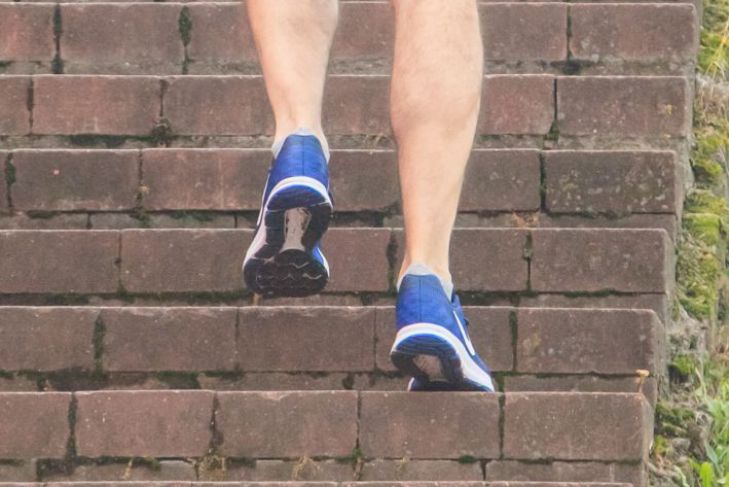Many people complain that they find it difficult to walk up and down stairs.
They instantly get tired and experience severe shortness of breath.
As a result, a broken elevator and the need to walk up to your floor are perceived as almost a tragedy.

It is especially difficult for older people, as well as people who have health problems or are overweight.
Fortunately, walking up the stairs can be turned into a simple exercise that does not involve too much heart palpitations or serious disruption of breathing rhythms.
To do this, it is enough to follow three simple rules.
Place your entire foot on the step
Some people prefer to place only the forefoot on the step.
As a result, the load is unevenly distributed, which makes climbing stairs much more difficult.
You need to place your entire foot on each step, and then walking up the stairs will become much easier.
Keep your back straight
Many people have an undesirable habit of leaning forward when walking on stairs.
This position also makes the load distribution uneven.
Try to keep your back straight. It will become easier.
Just don't overdo it: remember about balance, a sudden disruption of which can lead to a fall.
Raise your leg higher
Another common cause of fatigue when walking up stairs is lifting your leg a small distance - just enough to place your foot on the step.
It would seem that this is correct: the lower the leg is raised, the less effort has to be expended.
In fact, you need to raise your foot so that it is approximately 10 centimeters above the step.
By following this simple rule, the weight begins to be “redistributed” more correctly.
But it is worth emphasizing that there are certain ailments (for example, arthrosis) that do not allow you to raise your leg too high.
Such people should pay attention not to the rule described above, but to an interesting strategy called "step-step". Having placed the first foot on the step, you should also place the second foot on the same surface. Yes, in this case, walking up the stairs slows down, but it becomes easier.
Previously, experts named 3 habits that can extend life by 10 years.
